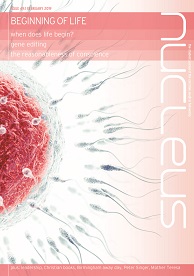1. abortion
If life in utero is of value to God, then unborn babies surely deserve the protection of the sixth commandment as much as any other human. UK law doesn't reflect this, with the Abortion Act (1967) (1) allowing abortion until the 24th week of pregnancy in specific (though broadly interpreted cases), and up to birth in cases of foetal abnormality. The Act does not apply in Northern Ireland and previous tight restrictions on abortion in the Republic of Ireland have been liberalised after a majority voted for this in the 2018 referendum.
For students, the main questions will be about our training and engaging with our friends. Many people we know will see abortion as a right, and go to considerable lengths to defend this 'perceived' right. There is limited research on medical students' views, though a 2008 paper suggests that a third hold pro-life views, (2) more than we might expect. Conversations need to be handled with care; with 197,533 abortions carried out in England and Wales in 2017, (3) it is quite likely that friends have direct experience of it.
The Abortion Act (1967) contains a conscience clause, making clear that medical professionals are not obliged to participate. GMC guidance on Personal Beliefs and Medical Practice gives further guidance. BMA guidance (4) is clear that medical students can opt-out of watching abortion procedures.
Although nearly all abortions in England and Wales are funded by the NHS, less than a third now take place in NHS hospitals, (5) meaning that questions over medical student participation may loom less large than they did. Even so, think through your position now. Will you watch abortions? Will you clerk patients who have been admitted for one? Will you insert a cannula for such a procedure?
I observed an abortion as a medical student, though chose not to participate in any way. This led to discussion with the consultant performing it: he didn't agree with my concerns about the procedure, but interestingly thought abortion wasn't discussed widely enough in obstetrics and gynaecology where few people opposed to abortion worked. Not all the nursing staff were open to any discussion, which mirrored my experience when I was working in obstetrics and gynaecology as an SHO some years later. My discussions at that time were much easier because I had thought about the issue before the moment when it became important; I'd counsel you to do the same.
While we must think through our position, we need to be careful that our ethics isn't simply about saying 'no'. Even when 'no' is clearly needed, we should consider how to support those requesting abortion. Some CMF members have been involved in Crisis Pregnancy Centres and similar initiatives, which help both those grappling with an unwanted pregnancy, and those dealing with trauma from a previous abortion, sometimes many years ago. Options (www.optionswimbledon.org) is an example of one such centre.
2. contraception
If you believe life begins, or even simply may begin at conception, this raises questions about methods of contraception which may act after conception but before implantation. Such treatments could be seen as inducing a very early abortion, rather than preventing a pregnancy. Older progesterone only pills, some forms of emergency contraception, and IUCDs have historically been the main areas of concern.
You will not be prescribing contraception as a student, but you may well find yourself discussing it, not just with patients but with friends, who assume that you are the fount of all medical knowledge. Some of you may well get married while still students, and need to think about the question personally rather than professionally. A detailed survey is outside the scope of a short article, but I would recommend two recent CMF publications. Contraception: A Guide to Ethical Use is a booklet that looks at all the currently used contraceptive methods, and brings together evidence on how and when they act. There is enough detail for the medical student or doctor, but straightforward enough language that the pastor or interested layperson will also find the booklet helpful. It is available from the CMF bookstore.
There is also a Contraception CMF File (Number 66) which addresses the wider question of whether Christians should use contraception at all, which is available on the CMF website. (6)
3. fertility treatments
The ethics of fertility treatments run far wider than questions about the early embryo; issues such as the legal status of surrogacy, sex-selection and pre-implantation diagnosis mean this is a broad and complex field. Purely in considering the ethics of early embryos, the main concern is over embryos which are produced in fertility treatments that are subsequently not implanted in a womb. Historically, most of these have simply been discarded or used for research. Some who are concerned about this have now begun to organise 'embryo adoptions', with embryos used by other couples who are able and willing to. Embryo Adoption (www.embryoadoption.org) is a Christian-run website in the US, which gives more information, though such a practice is not without its own legal, ethical, and practical problems.
CMF has considered the issues around fertility treatment in far more detail in the booklet Facing Infertility, available from the CMF bookstore.
Laurence Crutchlow is CMF Associate Head of Student Ministries and a GP in London
































